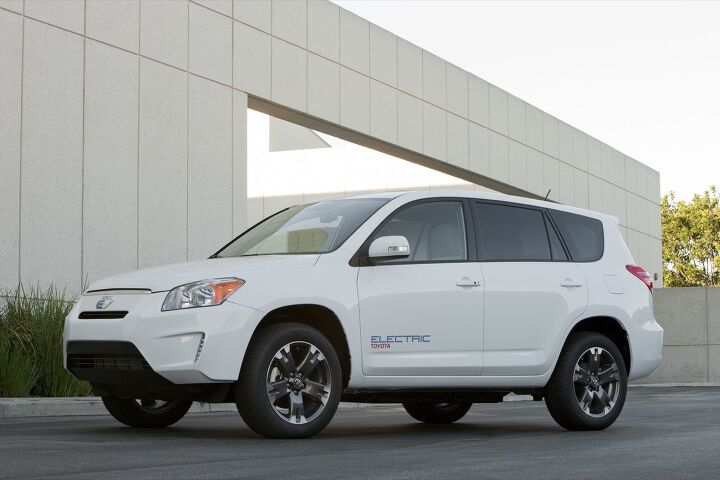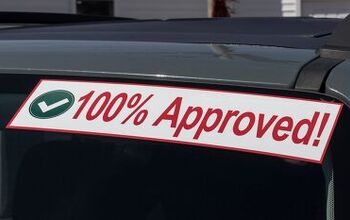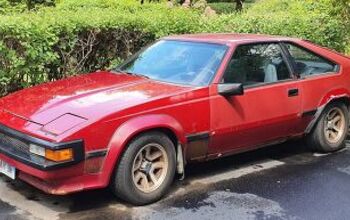Toyota Chairman: Shift to Electric Vehicles Will Not Be Rapid
Mazda is planning for the internal combustion engine of 2050. Toyota is applying the Dynamic Force improvements that worked wonders on the 2018 Camry’s fuel economy ratings to V6 and V8 engines.
And electric cars?
“We’re skeptical there would be a rapid shift to pure electric vehicles, given questions over user convenience,” Toyota chairman Takeshi Uchiyamada tells CNBC.
There is a Toyota electric car in your future, Uchiyamada believes. But more likely than not, it’s not in your near future.
Toyota was and continues to be at the forefront of hybrid development. Through the first seven months of 2017, for example, 49 percent of the hybrids and plug-in hybrids sold in the United States of America were Toyota products, according to HybridCars.com.
Toyota’s hybrid total alone — 126,155 vehicles during that period — was three times stronger than the overall sales total at Volvo, which recently made headlines with a plan that will see all new vehicle introductions involve hybrid or electric powertrains beginning in 2019.
But on the pure electric front, Toyota’s chairman believes a few more breakthroughs are needed on the technological front if battery-powered vehicles are to become fully capable. “I must say up front that we’re not against electric vehicles,” says Uchiyamada. “But in order for electric vehicles to cover long distances, they currently need to be loaded with a lot of batteries that take a considerable amount of time to charge.”
“There’s also the issue of battery life,” Uchiyamada says, who cites battery limitations as a key reason consumers aren’t embracing electric vehicles.
Toyota does not currently offer a pure EV in the United States. The Mirai is a hydrogen fuel cell vehicle. The Prius Prime is a plug-in hybrid with 25 miles of electric range. Those two vehicles account for slightly less than 1 percent of the 1,604,847 total vehicles sold by Toyota in the U.S. through the first two-thirds of 2017.
In the United States, the EV market accounts for 1 out of every 200 new vehicles sold. The overwhelming majority of those EV sales take place at three automakers: Tesla, Nissan, and Chevrolet.
[Images: Toyota]
Timothy Cain is a contributing analyst at The Truth About Cars and Autofocus.ca and the founder and former editor of GoodCarBadCar.net. Follow on Twitter @timcaincars.
More by Timothy Cain
Latest Car Reviews
Read moreLatest Product Reviews
Read moreRecent Comments
- Zerofoo 5-valve 1.8T - and OK engine if you aren't in a hurry. These turbocharged engines had lots of lag - and the automatic transmission didn't help.Count on putting a timing belt on this immediately. The timing belt service interval, officially, was 100,000 miles and many didn't make it to that.
- Daniel J 19 inch wheels on an Elantra? Jeebus. I have 19s on my Mazda 6 and honestly wish they were 18s. I mean, I just picked up 4 tires at over 1000 bucks. The point of an Elantra is for it to be cheap. Put some 17s on it.
- ToolGuy 9 miles a day for 20 years. You didn't drive it, why should I? 😉
- Brian Uchida Laguna Seca, corkscrew, (drying track off in rental car prior to Superbike test session), at speed - turn 9 big Willow Springs racing a motorcycle,- at greater speed (but riding shotgun) - The Carrousel at Sears Point in a 1981 PA9 Osella 2 litre FIA racer with Eddie Lawson at the wheel! (apologies for not being brief!)
- Mister It wasn't helped any by the horrible fuel economy for what it was... something like 22mpg city, iirc.


































Comments
Join the conversation
"Shift to Electric Vehicles Will Not Be Rapid" Shocking!
Japan Inc is in cahoots with oil companies in exchange for military protection. Japanese fuel cell research -> protection racket.